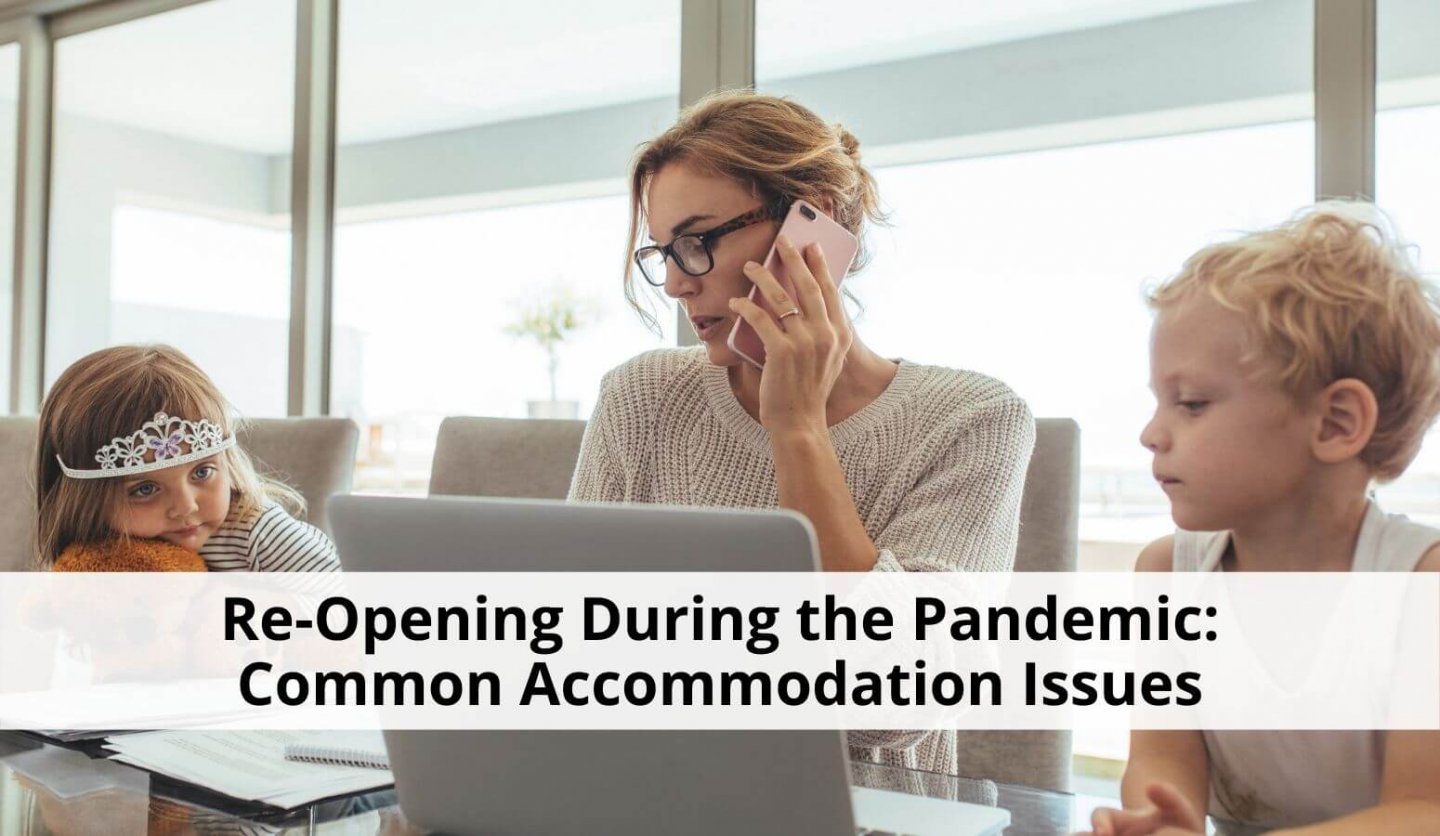
Accommodation Issues Impacted by COVID-19: Re-Opening During the Pandemic
As the economy gradually re-opens in Ontario, there are a few accommodation issues impacted by COVID-19 that both employers and employees should be aware of; these accommodation issues also intersect with prohibited grounds of discrimination under human rights law.
There are a few groups that COVID-19 could affect disproportionately in the workplace; generally, the three groups are workers that are older in age, individuals that are immune-compromised, and parents.
Older Workers:
One of the toughest accommodation issues impacted by COVID-19 is faced by older workers. There is enough information to determine that COVID-19 affects those that are older most, especially for those with heart disease, diabetes, kidney impairment, and/or lung issues. Although it is not advisable for employers to inquire about specific health issues, workplace policies should provide an easy avenue for workers that are older, especially with health issues, to request an accommodation. Regardless of policy, it would be reasonable for a worker that fits the above to be concerned and requesting accommodation. Employers should consider whether remote setup is possible, modifications to further enhance physical distancing, and the location of the worksite (for instance, Toronto would be more of a concern than a region that has had very few to no reported COVID-19 cases).
‘Immunocompromised’ employees:
A weakened immune system can be a result of various medical treatments and/or conditions. Similar to older workers, those that suffer from compromised immune systems are also at greater risk of contracting COVID-19 and having severe complications. Employers should respond similarly with accommodation and implement policies that facilitate the necessary dialogue for identifying such issues. Again, location of the workplace, the capability of working remote, and enhancing physical distancing should all be explored when attempting accommodation.
Parents:
Parents with dependent children will also face barriers to returning to work especially as schools and childcare services may be reduced or not yet open and are thus faced with accommodation issues impacted by COVID-19. Here, the employer will need to work with employees that need to balance their childcare responsibilities with their work schedule. The onus is on the employee to show they have taken reasonable steps to secure childcare arrangements for dependents under their care, and once established, an employer must take steps to provide reasonable accommodation. Reasonable accommodation may include remote work, change in required hours of work or flexible scheduling, or a temporary leave of absence.
The above three examples are all protected grounds of discrimination under human rights law. Employers must take reasonable steps to accommodate employees on grounds of family status, illness, age, and so forth, up to the point of undue hardship. Conversely, employees must cooperate and accept reasonable accommodations, even if they are not the employee’s ideal. Both employees and employers are encouraged to seek legal advice if faced with difficulties regarding accommodation due to COVID-19, as human rights law can be very difficult to navigate especially during this unprecedented pandemic. Lastly, under no circumstances should an employee be disclosing the exact nature of health conditions. Policies must be implemented in a way that facilitates accommodation while protecting employee privacy. Both employees and employers are encouraged to seek legal advice if this a concern on either end.
With years of experience in this ever-changing area of law, we at Whitten & Lublin are happy to provide insight and advice into your specific work situation. If you’re looking for employment lawyers and would like more information about what Whitten & Lublin can do for you, please contact us online or by phone at (416) 640-2667 today.
Share:
Share on facebook
Share on twitter
Share on linkedin



